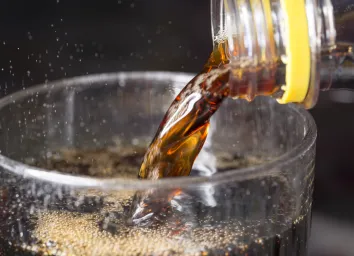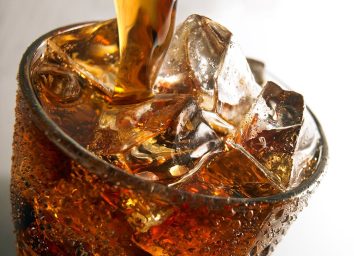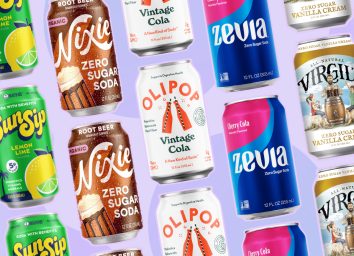10 Warning Signs You’re Drinking Too Much Coke
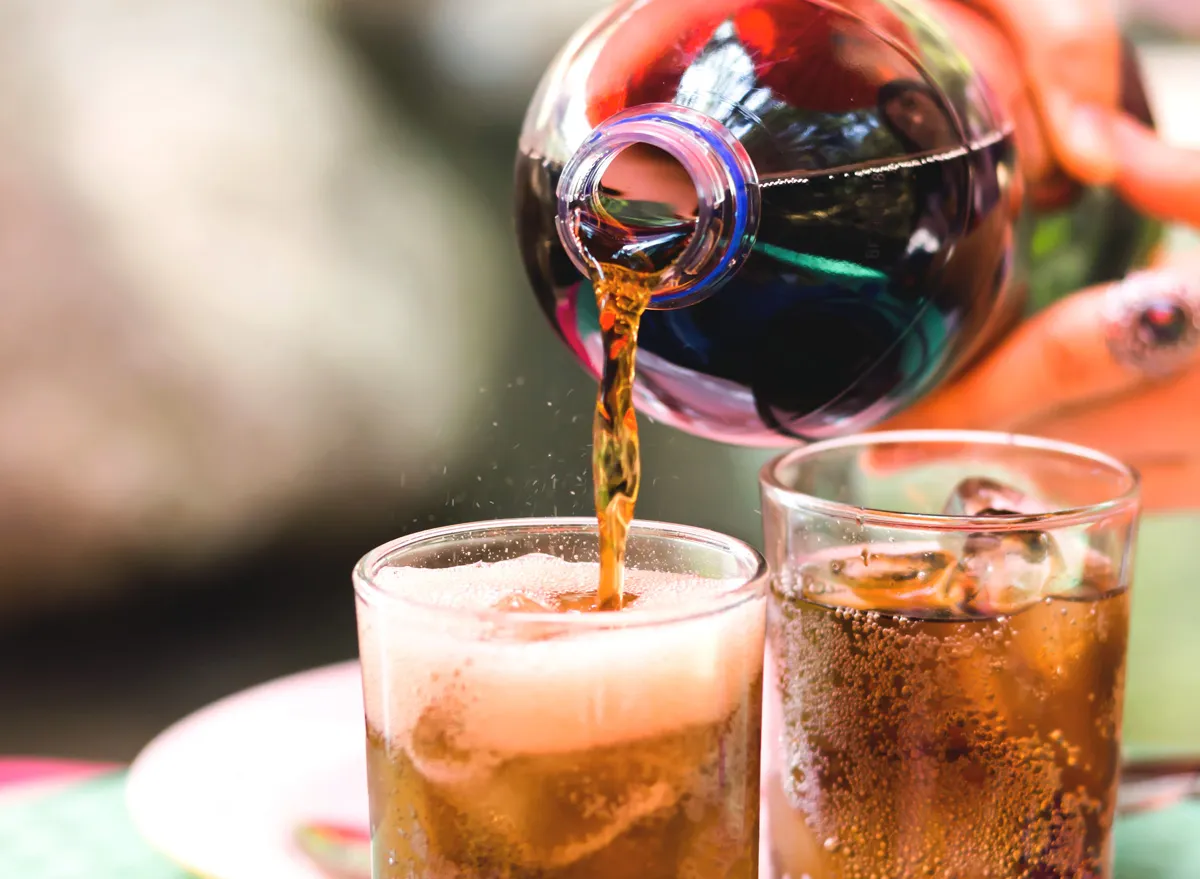
Today, Coca-Cola sells so many kinds of different beverages (3,500) that if you drank one a day, it would take you 9 years to sample them all. (And that’s just the number the company offers today; remember the 7 Laughable Coke Spinoffs That Didn’t Work?) Every day 1.7 billion servings of Coke products are consumed worldwide.
That’s a lot of sugar water.
Are you drinking too much Coke and other sodas? A quick glance in your recycling bin may offer a clue. If you count up 7 cans or bottles of soda that you drained yourself, many studies suggest that yes, you’re drinking enough to compromise your health. According to one of the largest, the landmark U.S. Framingham Heart Study, drinking just one can of soda daily has been linked to obesity, increased waist size, high blood pressure, high cholesterol, increased risk of type 2 diabetes and heart attack, stroke, poorer memory, smaller brain volume, and dementia.
While an occasional Coke won’t leave you with lasting ill-health effects, making a habit of drinking soda may, studies suggest. These subtle warning signs may signal that it’s time to cut back before your habit becomes a serious health issue. Read on, and for more on how to eat healthy, you won’t want to miss these 108 Most Popular Sodas Ranked by How Toxic They Are.
You need to buy larger pants.

Drinking a lot of soda, like Coke, which is high in high fructose corn syrup, is associated with an increase in “visceral adiposity” — that’s science-speak for belly fat. In a study published in the Journal of Clinical Investigation, researchers gave overweight adults one of two sweet beverages, either a glucose-sweetened drink or a fructose-sweetened drink. After 10 weeks, the researchers observed significant increases in total body fat in both groups, but only significant increases in belly fat in the group consuming fructose. Dozens of other observational studies have linked the high-fructose content of added sugars to excess belly fat. Another inherent problem with sodas and other sweet drinks is that it’s very easy to consume large doses of sugar in a short window of time. Soda might be an obvious one, but there are another 13 Foods You Didn’t Realize Are Causing Belly Fat.
You look or feel older than you are.

Drinking soda is dehydrating, thanks to the caffeine in it. So, if you drink too much Coke, you may notice such symptoms of dehydration as dry skin, fine lines, and wrinkles on your face and hands. But there may be more going on than just dehydration. The sugars and chemical additives in sodas may speed up aging on the cellular level, according to a 2014 study in the American Journal of Public Health. As we age, our telomeres, the caps on the ends of our chromosomes, shrink. Scientists believe telomeres act as the aging clock in our cells because when they get too short, our cells stop working correctly and we show the signs of aging. The researchers from the University of California at San Francisco in the study analyzed DNA from 5,300 healthy Americans that had been stored 14 years prior and discovered that those who drank more pop tended to have shorter telomeres. According to their 2014 research, drinking a 20-ounce soda every day was linked to 4.6 years of additional aging, the same accelerated aging you get from smoking cigarettes. Skip the soda and opt for these 20 Foods You Should Be Eating Every Day for a Longer Life.
Your migraine headaches seem worse.

The sugars and artificial sweeteners in Coke and Diet Coke may trigger headaches. Or the combo of sweeteners and the dehydrating effect of the caffeine in Cokes may put your head pain over the top. A review of headache triggers in the Clinical Journal of Pain in 2009 suggests that aspartame, the sweetener in Diet Coke and other diet sodas may make headaches worse when people susceptible to migraines consume the amount of aspartame found in five or more diet sodas. (Related: 10 Foods That May Be Triggering Your Headaches.)
Your doctor diagnoses prediabetes or type 2 diabetes.
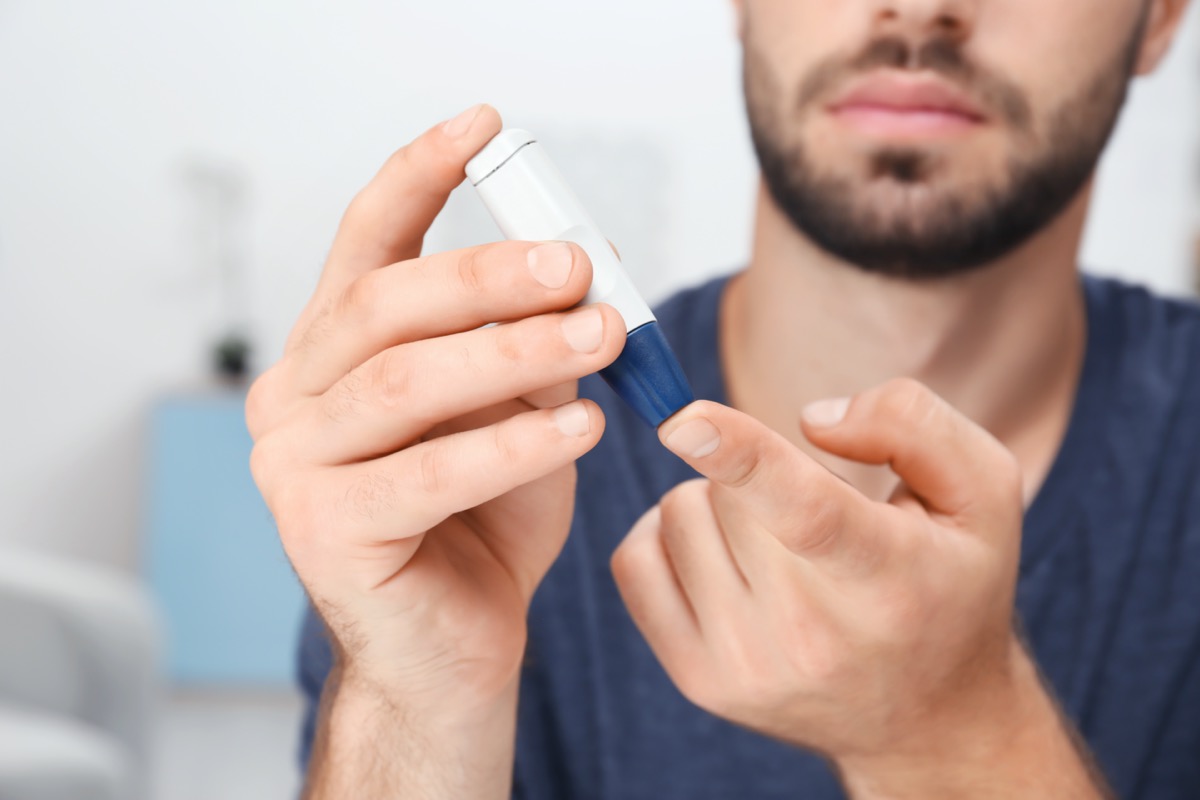
A meta-analysis of 88 studies found a clear association between drinking sugary soft drinks and type 2 diabetes. One of the larger studies showed a 26% increased risk of developing diabetes for people who consumed one to two servings of sugar-sweetened beverages daily when compared to people who rarely consumed them. Another, an eight-year study of 91,000 women found that females who drank one or more sodas a day were twice as likely to develop diabetes as women who drank less than one soda a month.
Your blood pressure is higher than normal.

Drinking more than one soda or another type of sugar-sweetened beverage a day was associated with higher blood pressure, according to a report in the journal Hypertension.
In the study, researchers from the School of Public Health at Imperial College in London analyzed the diets and health of some 2,700 middle-age people in the UK and US. The study did not determine cause and effect, but after accounting for weight and other risk factors, regular soda consumption still seemed to put participants at greater risk of heart disease. Do your heart a favor and eliminate these 13 Worst Foods for High Blood Pressure.
Your big toe is painfully swollen.
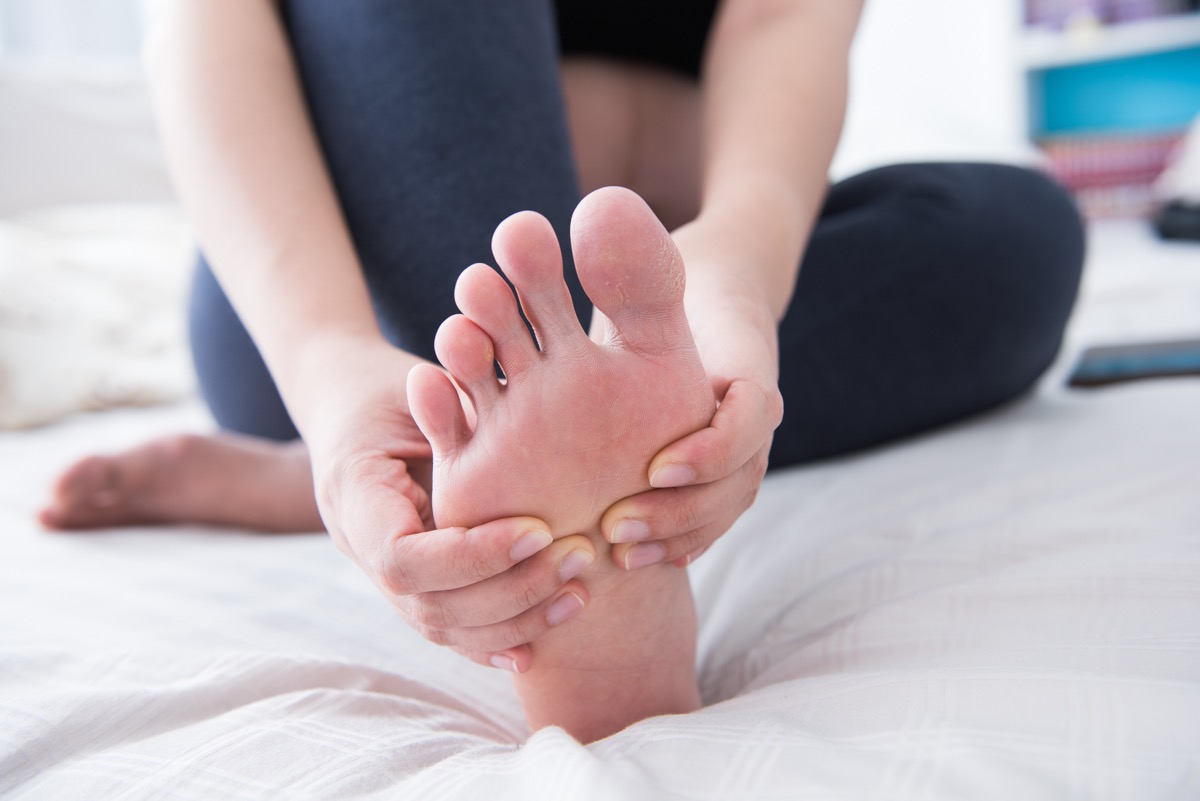
That’s a symptom of gout. The inflammatory disorder can be triggered by many things, one of which is by drinking too much high fructose corn syrup, a sweetener found in Coke and other sodas. “Fructose is metabolized differently from glucose,” Peter Simkin, MD, emeritus professor of medicine in the University of Washington School of Medicine division of Rheumatology told Arthritis Today magazine. As our bodies break down fructose, uric acid levels rise, which produce painful crystals in the joints, the classic symptom of gout. A 2008 study in BMJ found that men who drink two or more sugary sodas daily have an 85 percent higher risk for gout than men who drink less than one soda a month.
When you stop drinking Coke, you feel tired.

If you drink a lot of caffeinated beverages and abruptly stop, you could feel the telltale symptoms of withdrawal—flu-like symptoms, fatigue, irritability, constipation, insomnia, and lack of concentration, according to the Caffeine Informer.
Your teeth are full of fillings.
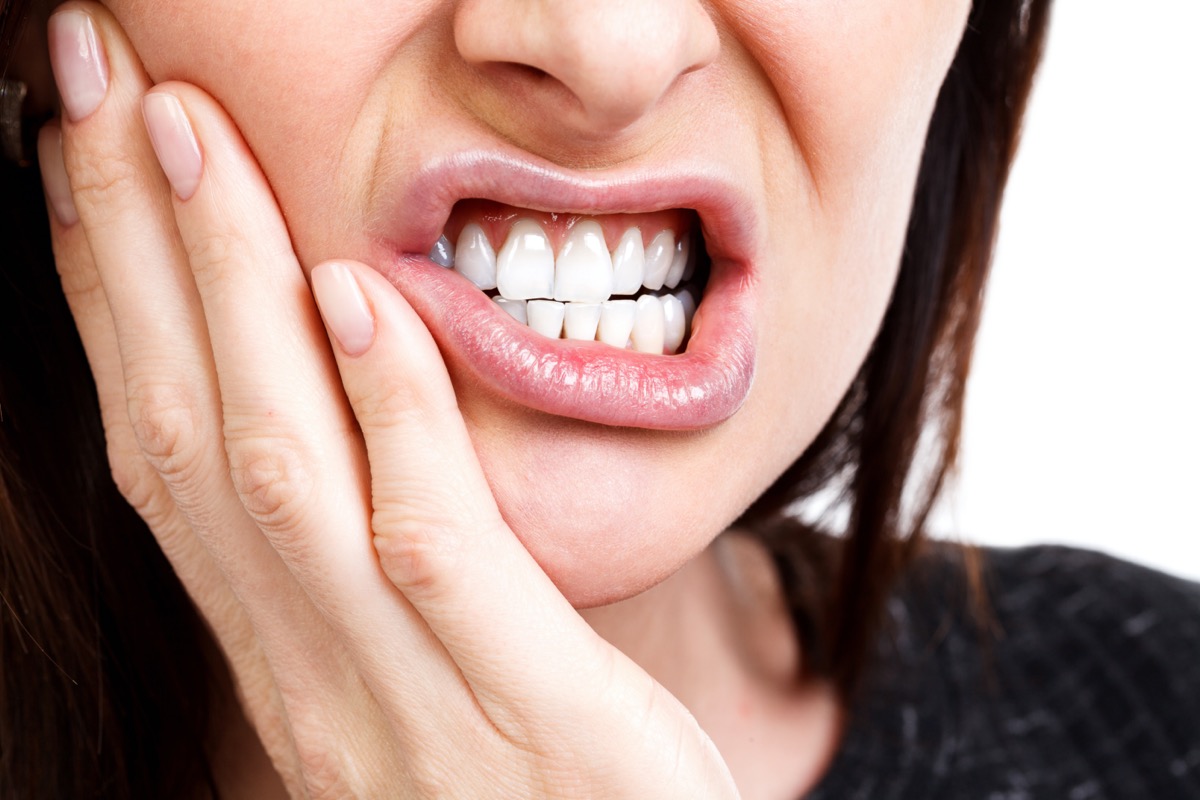
Harmful bacteria in our mouth eat the sugars we consume, and acid is the byproduct. When you drink a lot of soda and other sugary beverages, your mouth is flooded with acid that causes cavities to form and erosion to occur, according to the American Dental Association. Tip: when you have a soda, drink it, don’t sip it, says the ADA. The shorter time the liquid sugar is sloshing around your teeth, the better. And brush afterward.
You seem to be shrinking or have a stooped posture.

Both symptoms may mean you are suffering from osteoporosis, or brittle bones, and drinking lots of colas may be one of the contributing factors in bone weakness. Research published in the American Journal of Clinical Nutrition suggests that drinking not just any carbonated beverage but specifically colas is associated with reductions in bone mineral density in women. Low bone density is a sign of osteoporosis, which makes you more susceptible to fractures.
Seeing a can of soda triggers a strong lust for the sweet taste.

Can you become addicted to sugary sodas? That’s hard to prove, but research does suggest that foods can be addictive. One rodent study found that sugar binging causes a release of dopamine, the so-called “happy hormone” in their brains. Will it do the same in your noggin? Other studies on humans suggest that the same neurobiological pathways that are implicated in drug abuse also control food and drink consumption. Skip the soda and opt for the 11 Healthiest Drinks for Weight Loss.

